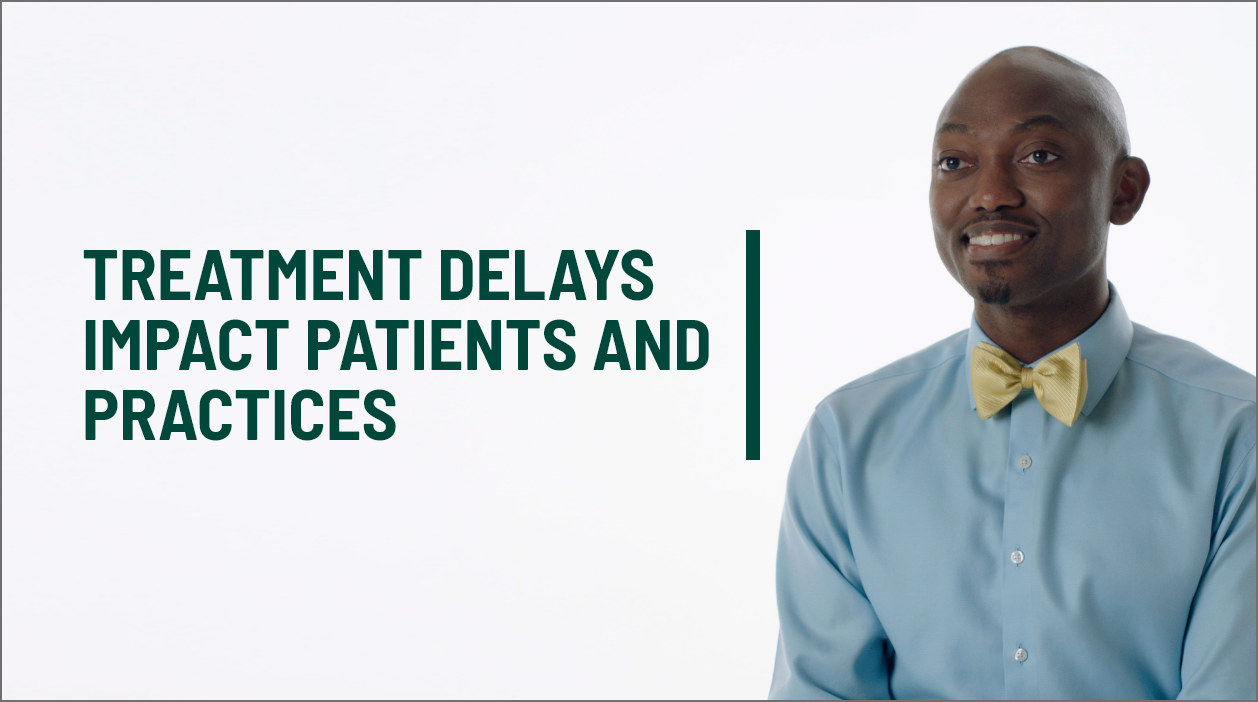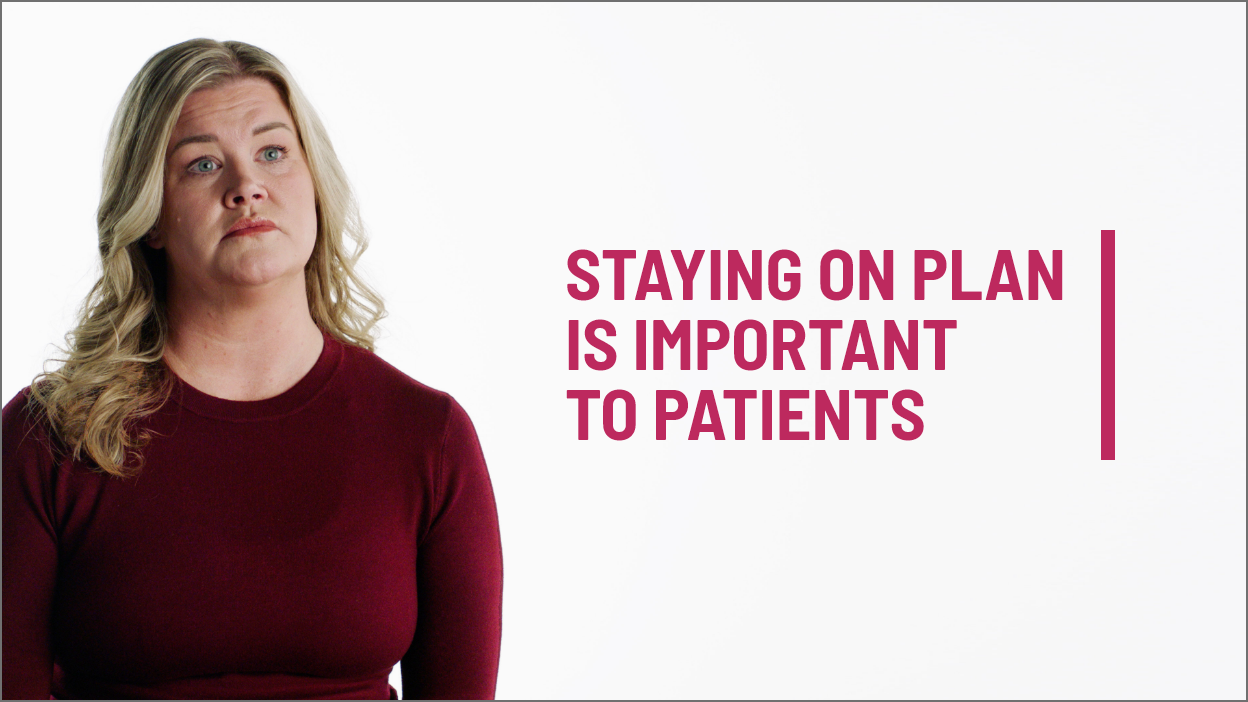
To decrease the incidence of chemotherapy-induced myelosuppression in patients when administered prior to a platinum/etoposide-containing regimen or topotecan-containing regimen
For extensive-stage small cell lung cancer (ES-SCLC)
PROACTIVELY HELPS PROTECT PATIENTS AGAINST MULTIPLE MYELOSUPPRESSIVE CONSEQUENCES
PIVOTAL STUDY ENDPOINTS: COSELA® (trilaciclib) Proactively Given Prior to Etoposide, Carboplatin, and Atezolizumab in 1st-Line ES-SCLC Patients
See Study DesignNEUTROPHIL LINEAGE1
RBC LINEAGE1Secondary Endpoints
PLATELET LINEAGE1Secondary Endpoints
Data are from the induction phase. P values are raw one-sided or multiplicity-adjusted.
| * | Multiplicity-adjusted P value. (All other P values are raw one-sided.) |
| † | Adjusted relative risk (aRR) 0.038 (95% CI, 0.008, 0.195) |
| ‡ | Mean difference -3.6 (95% CI, -4.9, -2.3) |
| § | aRR 0.663 (95% CI, 0.336, 1.310) |
| ‖ | aRR 0.642 (95% CI, 0.294, 1.404) |
| ¶ | aRR 0.053 (95% CI, 0.008, 0.356) |
| # | Results for platelet endpoints including incidence of Grade 3/4 thrombocytopenia and platelet transfusions were not consistent across COSELA clinical trials. See Study 2. See Study 3. |
Grade 3/4 anemia was defined as Grade 3/4 decreased hemoglobin.
Standard-of-care supportive interventions, including RBC and platelet transfusions, were allowed per investigator discretion throughout the entire treatment period. Primary prophylaxis with granulocyte colony-stimulating factors (G-CSFs) and use of erythropoiesis stimulating agents (ESAs) were prohibited in cycle (C) 1 of induction, although therapeutic G-CSF was allowed in all cycles. More patients in the E/P/A regimen arm without COSELA received G-CSF Administration (47.2% vs 29.6%, aRR 0.646 [95% CI, 0.403, 1.034]) and had ESA use (11% vs 6%, aRR 0.529 [95% CI, 0.145, 1.927]) vs with COSELA, respectively.
E/P/A Regimen Arm=E/P/A + Placebo
AE=Adverse Event
FN=Febrile Neutropenia
on PubMed >
THE MULTILINEAGE DATA THAT COMPELLED HEALTHCARE PROVIDERS TO ADOPT COSELA



A NOVEL APPROACH TO MULTILINEAGE RISKS
NARRATOR (00:09)
COSELA is indicated to decrease the incidence of chemotherapy-induced myelosuppression in adult patients when administered prior to a platinum/etoposide-containing regimen or topotecan-containing regimen for ES-SCLC.
Jason Porter, MD
At least 30 to 40% of the time, you get multilineage involvement with cytopenia. So, there can be neutropenia with anemia and thrombocytopenia. So, you'll see multilineage effect often.
The multilineage aspect of COSELA is really what excites me. So, when you're giving COSELA, one treatment that's taking care of the cell lineages is immensely important.
I think the reduction in red blood cell transfusion is one of the most important components to me. Obviously, the neutrophils are very important, but you can treat those without hospitalizing the patient sometimes. But a lot of times, when they're really symptomatic with their anemia, you have to hospitalize them. And so the reduction in red blood cell transfusion is very important for me.
So, when we look at the COSELA data, we see a reduction in thrombocytopenia from 37% to 2%, and when we reduce that thrombocytopenia, actually it's the best thing for the patient, as well as for me. It's a win for me, too.
NARRATOR
Important Safety Information:
COSELA is contraindicated in patients with a history of serious hypersensitivity reactions to trilaciclib.
Warnings and precautions include injection-site reactions (including phlebitis and thrombophlebitis), acute drug hypersensitivity reactions, interstitial lung disease (pneumonitis), and embryo-fetal toxicity.
The most common adverse reactions (≥10%) were fatigue, hypocalcemia, hypokalemia, hypophosphatemia, aspartate aminotransferase increased, headache, and pneumonia.
This information is not comprehensive. Please see the full Prescribing Information at COSELA.com


A NOVEL APPROACH TO MULTILINEAGE RISKS
NARRATOR (00:09)
COSELA is indicated to decrease the incidence of chemotherapy-induced myelosuppression in adult patients when administered prior to a platinum/etoposide-containing regimen or topotecan-containing regimen for ES-SCLC.
Jason Porter, MD
At least 30 to 40% of the time, you get multilineage involvement with cytopenia. So, there can be neutropenia with anemia and thrombocytopenia. So, you'll see multilineage effect often.
The multilineage aspect of COSELA is really what excites me. So, when you're giving COSELA, one treatment that's taking care of the cell lineages is immensely important.
I think the reduction in red blood cell transfusion is one of the most important components to me. Obviously, the neutrophils are very important, but you can treat those without hospitalizing the patient sometimes. But a lot of times, when they're really symptomatic with their anemia, you have to hospitalize them. And so the reduction in red blood cell transfusion is very important for me.
So, when we look at the COSELA data, we see a reduction in thrombocytopenia from 37% to 2%, and when we reduce that thrombocytopenia, actually it's the best thing for the patient, as well as for me. It's a win for me, too.
NARRATOR
Important Safety Information:
COSELA is contraindicated in patients with a history of serious hypersensitivity reactions to trilaciclib.
Warnings and precautions include injection-site reactions (including phlebitis and thrombophlebitis), acute drug hypersensitivity reactions, interstitial lung disease (pneumonitis), and embryo-fetal toxicity.
The most common adverse reactions (≥10%) were fatigue, hypocalcemia, hypokalemia, hypophosphatemia, aspartate aminotransferase increased, headache, and pneumonia.
This information is not comprehensive. Please see the full Prescribing Information at COSELA.com

COSELA HELPS SUPPORT YOUR TREATMENT PLAN
PIVOTAL STUDY SECONDARY ENDPOINTS: The rate of all-cause chemotherapy dose reductions, events per 100 cycles, was significantly lower with COSELA, added to an E/P/A regimen: 2.1 vs 8.5 without COSELA (aRR: 0.242 [95% CI, 0.079, 0.742], P=0.0195).
See Study DesignFEWER PATIENTS REQUIRED DOSE REDUCTIONS OF CARBOPLATIN1
FEWER PATIENTS REQUIRED DOSE REDUCTIONS OF ETOPOSIDE1
Dose reductions of carboplatin occurred in 2% of patients receiving COSELA and in 25% of patients receiving placebo; dose reductions of etoposide occurred in 6% of patients receiving COSELA and in 26% of patients receiving placebo. No dose reduction was allowed for COSELA or atezolizumab.
Visual representations are based on the clinical data. Statistical comparisons were not made between groups.
NUMBER OF PATIENTS WITH CHEMOTHERAPY CYCLE DELAYS1
Cell cycle delays can be a result of hematological toxicity or other factors.
Results were not statistically compared.
HEALTHCARE PROVIDERS SHARE HOW CHEMOTHERAPY DELAYS IMPACT PATIENTS AND PRACTICES



TREATMENT DELAYS IMPACT PATIENTS AND PRACTICES
NARRATOR (00:09)
COSELA is indicated to decrease the incidence of chemotherapy-induced myelosuppression in adult patients when administered prior to a platinum/etoposide-containing regimen or topotecan-containing regimen for ES-SCLC.
Jason Porter, MD
Routine is for patients, very important to me because we're dealing with cancer and patients feel like things are out of their control. So, let's control as much as we can.
Myelosuppression can be a big deal. Things that matter to patients are that, "I get my therapy," and, "I get my therapy on time." And what happens with myelosuppression is it delays therapy. It also reduces the amount of therapy that patients can tolerate.
It means that there's time off therapy, the disease is growing. We know that it’s a rapidly dividing cancer cell, cancer type. And so, those patients, when they're off therapy, they experience not only the mental kind of angst of wanting therapy and not getting it and knowing that the disease is growing, but in addition to that, the disease actually grows.
It's post-COVID time now, we have limited nursing staff, and the chair time for each patient to receive their chemotherapy is very valuable. So, when we have to delay therapy, we have to figure out the schedule again, and make sure we have nursing coverage, make sure that drugs are going to be available in the time that the patient's going to be in the infusion suite.
And all of that, a lot of work goes into that scheduling. And sometimes, it's underappreciated until you run into times like now, where the scheduling is limited.
NARRATOR
Important Safety Information:
COSELA is contraindicated in patients with a history of serious hypersensitivity reactions to trilaciclib.
Warnings and precautions include injection-site reactions (including phlebitis and thrombophlebitis), acute drug hypersensitivity reactions, interstitial lung disease (pneumonitis), and embryo-fetal toxicity.
The most common adverse reactions (≥10%) were fatigue, hypocalcemia, hypokalemia, hypophosphatemia, aspartate aminotransferase increased, headache, and pneumonia.
This information is not comprehensive. Please see the full Prescribing Information at COSELA.com




STAYING ON PLAN IS IMPORTANT TO PATIENTS
NARRATOR (00:09)
COSELA is indicated to decrease the incidence of chemotherapy-induced myelosuppression in adult patients when administered prior to a platinum/etoposide-containing regimen or topotecan-containing regimen for ES-SCLC.
Monica Tripodi, APRN, MSN, FNP-C, AOCNP
The patients are always sad and a little disheartened when they have to have a delay in treatment because they know that a delay in treatment means that those cancer cells are able to grow and that there's always the possibility that the cancer could spread.
It can be overwhelming because you feel like you're letting the patient down. A lot of times their family members are with them and they even know that every time we look at a treatment delay, every time we look at a dosage reduction, that we're giving the cancer time to grow and possibly spread, which means more symptoms, possibly worsening shortness of breath, a lot of the symptoms that come with the lung cancer.
So proceeding as planned for the patient means that they can meet the goals that they have planned for themselves on their calendar, which of course they're writing down wedding days, graduation days, milestones that they're wanting to meet, the whole reason why they're going through these therapies. So what this means for the patient is that they don't have to delay their treatment.
Cycle delays for our practice just means more appointments for lab draws, which affect the staff and affect the wait time of the other patients. So when you're taking up more chair time, it means other patients that were scheduled to receive treatment may have to wait.
NARRATOR
Important Safety Information:
COSELA is contraindicated in patients with a history of serious hypersensitivity reactions to trilaciclib.
Warnings and precautions include injection-site reactions (including phlebitis and thrombophlebitis), acute drug hypersensitivity reactions, interstitial lung disease (pneumonitis), and embryo-fetal toxicity.
The most common adverse reactions (≥10%) were fatigue, hypocalcemia, hypokalemia, hypophosphatemia, aspartate aminotransferase increased, headache, and pneumonia.
This information is not comprehensive. Please see the full Prescribing Information at COSELA.com


TREATMENT DELAYS IMPACT PATIENTS AND PRACTICES
NARRATOR (00:09)
COSELA is indicated to decrease the incidence of chemotherapy-induced myelosuppression in adult patients when administered prior to a platinum/etoposide-containing regimen or topotecan-containing regimen for ES-SCLC.
Jason Porter, MD
Routine is for patients, very important to me because we're dealing with cancer and patients feel like things are out of their control. So, let's control as much as we can.
Myelosuppression can be a big deal. Things that matter to patients are that, "I get my therapy," and, "I get my therapy on time." And what happens with myelosuppression is it delays therapy. It also reduces the amount of therapy that patients can tolerate.
It means that there's time off therapy, the disease is growing. We know that it’s a rapidly dividing cancer cell, cancer type. And so, those patients, when they're off therapy, they experience not only the mental kind of angst of wanting therapy and not getting it and knowing that the disease is growing, but in addition to that, the disease actually grows.
It's post-COVID time now, we have limited nursing staff, and the chair time for each patient to receive their chemotherapy is very valuable. So, when we have to delay therapy, we have to figure out the schedule again, and make sure we have nursing coverage, make sure that drugs are going to be available in the time that the patient's going to be in the infusion suite.
And all of that, a lot of work goes into that scheduling. And sometimes, it's underappreciated until you run into times like now, where the scheduling is limited.
NARRATOR
Important Safety Information:
COSELA is contraindicated in patients with a history of serious hypersensitivity reactions to trilaciclib.
Warnings and precautions include injection-site reactions (including phlebitis and thrombophlebitis), acute drug hypersensitivity reactions, interstitial lung disease (pneumonitis), and embryo-fetal toxicity.
The most common adverse reactions (≥10%) were fatigue, hypocalcemia, hypokalemia, hypophosphatemia, aspartate aminotransferase increased, headache, and pneumonia.
This information is not comprehensive. Please see the full Prescribing Information at COSELA.com


STAYING ON PLAN IS IMPORTANT TO PATIENTS
NARRATOR (00:09)
COSELA is indicated to decrease the incidence of chemotherapy-induced myelosuppression in adult patients when administered prior to a platinum/etoposide-containing regimen or topotecan-containing regimen for ES-SCLC.
Monica Tripodi, APRN, MSN, FNP-C, AOCNP
The patients are always sad and a little disheartened when they have to have a delay in treatment because they know that a delay in treatment means that those cancer cells are able to grow and that there's always the possibility that the cancer could spread.
It can be overwhelming because you feel like you're letting the patient down. A lot of times their family members are with them and they even know that every time we look at a treatment delay, every time we look at a dosage reduction, that we're giving the cancer time to grow and possibly spread, which means more symptoms, possibly worsening shortness of breath, a lot of the symptoms that come with the lung cancer.
So proceeding as planned for the patient means that they can meet the goals that they have planned for themselves on their calendar, which of course they're writing down wedding days, graduation days, milestones that they're wanting to meet, the whole reason why they're going through these therapies. So what this means for the patient is that they don't have to delay their treatment.
Cycle delays for our practice just means more appointments for lab draws, which affect the staff and affect the wait time of the other patients. So when you're taking up more chair time, it means other patients that were scheduled to receive treatment may have to wait.
NARRATOR
Important Safety Information:
COSELA is contraindicated in patients with a history of serious hypersensitivity reactions to trilaciclib.
Warnings and precautions include injection-site reactions (including phlebitis and thrombophlebitis), acute drug hypersensitivity reactions, interstitial lung disease (pneumonitis), and embryo-fetal toxicity.
The most common adverse reactions (≥10%) were fatigue, hypocalcemia, hypokalemia, hypophosphatemia, aspartate aminotransferase increased, headache, and pneumonia.
This information is not comprehensive. Please see the full Prescribing Information at COSELA.com

INDICATION: COSELA is indicated to decrease the incidence of chemotherapy-induced myelosuppression in adult patients when administered prior to a platinum/etoposide-containing regimen or topotecan-containing regimen for extensive-stage small cell lung cancer (ES-SCLC).
Hematologic Adverse Reactions Summary
QUICK LINKS
HEAR FROM PEERS
Sujith Kalmadi, MD, describes the reductions in myelosuppression he has seen with COSELA.
